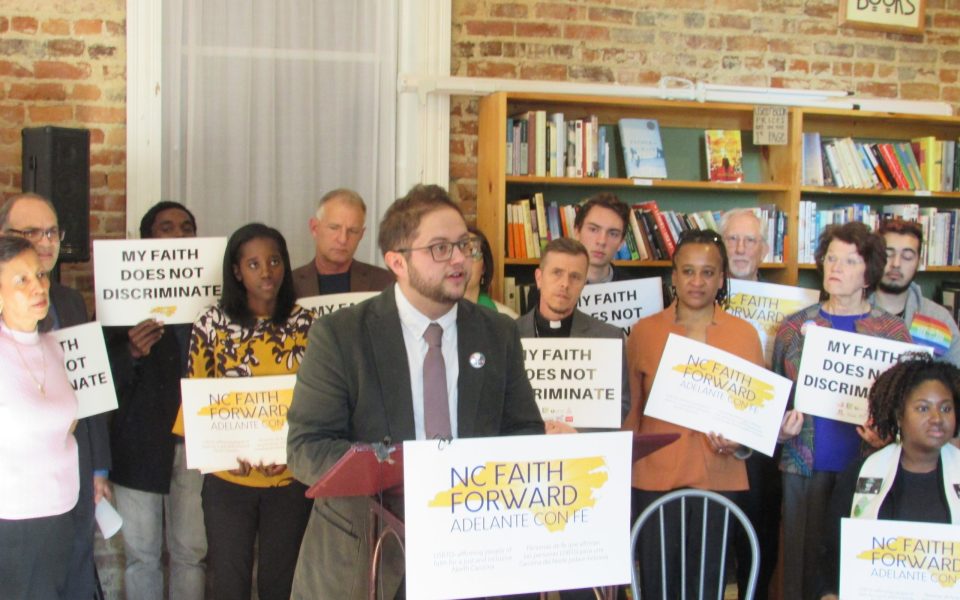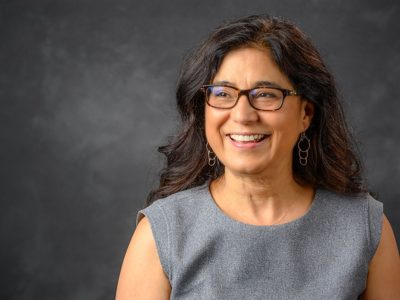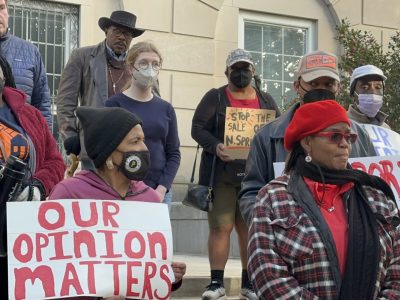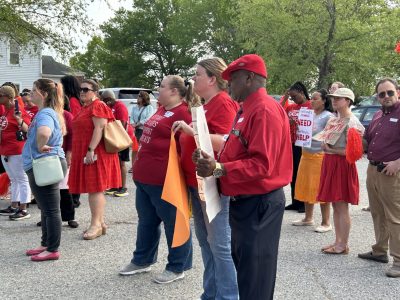On the eve of oral arguments before the US Supreme Court, a coalition of faith leaders, civil libertarians and business owners gathered at Scuppernong Books in Greensboro on Monday to make the case that private businesses don’t have the right to discriminate against people on the basis of sexual orientation.
Masterpiece Cakeshop v. Colorado Civil Rights Commission, the case before the Supreme Court, hinges on whether Jack Phillips, a Christian Denver-area baker, holds the right to refuse to design a wedding cake for a same-sex couple on the basis of religious freedom and the First Amendment.
The half-dozen speakers at Scuppernong focused more on the former claim, arguing that denying services to LGBTQ people is not only a violation of civil rights but also flies in the face of the Judeo-Christian faith tradition.
“As we know, this case isn’t about cake, but it also isn’t really about Jesus,” said Alex McNeill, the executive director of More Light Presbyterians, a national organization that promotes LGBTQ inclusion in the Presbyterian Church (USA). Behind him, dozens of supporters held signs reading, “My faith doesn’t discriminate.”
“I’ve read the Bible and I can’t find a single place where Jesus turned someone away because of who they are,” said McNeill, who is in the process of becoming a Presbyterian minister. “In fact, Jesus’ ministry was about welcoming people, and meeting people where they are. Jesus taught us that we show our love for God by loving our neighbor, even when we disagree.” He added that “granting businesses the right to discriminate is not only inconsistent with our Constitution, it’s also opposite to Jesus’ example.”
A transgender man, McNeill said he could easily imagine himself in the shoes of David Mullins and Charlie Craig, the same-sex couple in the Supreme Court case. After all, he was planning his own wedding in North Carolina in 2012, the year the Colorado couple was turned down by Masterpiece Cakeshop.
“Every time I walk through the doors of a business, I worry that my fiancé and I will be turned away or treated badly because of who we are,” McNeill said. “We were so excited to plan our wedding and begin our lives together as a new couple, but I braced myself when walking into a new business. Would I be told by a store employee or owner that they didn’t ‘serve my kind’ here?”
The Rev. Anthony Spearman, president of the North Carolina NAACP and pastor at St. Phillips AME Zion Church in Greensboro, said religious freedom claims have a long and ignoble history of being used as a ploy for justifying discrimination. Dating back to his role as an NAACP leader in Hickory, Spearman has worked to “bridge the gap between gay rights and black rights,” as he put it.
“Those who cannot accept the reality that all humans are created in the image of God tried the same arguments in the 1970s to assert that women should be paid unequally because their proper role was in the home,” Spearman said. He added that the same arguments were used in the 1950s “to assert that Negroes should be segregated because they were members of an inferior race” and in the 1930s “to assert that Jews and Gypsies and intellectuals should be sent to the gas chambers.”
Spearman also cited the Newman v. Piggie Park case, in which the Supreme Court unanimously ruled in 1968 that Maurice Bessinger, a member of the National Association for the Preservation of White People, did not have the right to exclude blacks from eating in his South Carolina barbecue restaurant.
“In a pretextual argument based on years of Southern sophistry and mendacity, the barbecue owners said they had always allowed black customers to buy take-out food, but they believed it was against their religion to promote integration inside the restaurant,” Spearman said. “The Supreme Court found [unanimously] that the Piggie Park barbecue was going to have to get with the program of the new South — black and white children sitting down together in schools, restaurants, maybe just maybe in churches.”
Andy Koren, the associate rabbi at Temple Emanuel and a co-chair of the Greensboro Faith Leaders Council, said scripture from the first book of the Bible and Torah declaring that “all humanity is created in the divine image of God” provides a theological grounding for inclusion. He acknowledged that many conservative religious leaders point out that “the Bible calls homosexuality an abomination.
“Let’s also not forget that the Bible refers to eating shrimp as an abomination,” Koren added. “The same is true for lobsters. You don’t see anything with that. More importantly, however, the Bible sees cheating in business and deception and lying as abominations. And which of these is most important? As a religious leader, I know my answer.”
Margarita Delgado, the owner of Manny’s Universal Café, ended the assembly by declaring that her Christian faith compels her to welcome people of all backgrounds.
“I believe when I open the door as an owner, I should have the doors open for everybody,” she said. “As an owner, I cannot be selective…. I believe in Jesus Christ, and I do believe the love of Jesus should be the center of everything. And when we start practicing this, we’ll all be the same. There’ll be no discrimination, there’ll be no color or race. And we all at sometimes have been discriminated [against].”
Join the First Amendment Society, a membership that goes directly to funding TCB‘s newsroom.
We believe that reporting can save the world.
The TCB First Amendment Society recognizes the vital role of a free, unfettered press with a bundling of local experiences designed to build community, and unique engagements with our newsroom that will help you understand, and shape, local journalism’s critical role in uplifting the people in our cities.
All revenue goes directly into the newsroom as reporters’ salaries and freelance commissions.





You people seem to forget Jesus said to leave behind your old sinful life and come join him. Not to continue in your path of sin. You guys trying to say homosexuality and being “transgender” is okay is not righteous and you are encouraging people to continue on that sinful path.